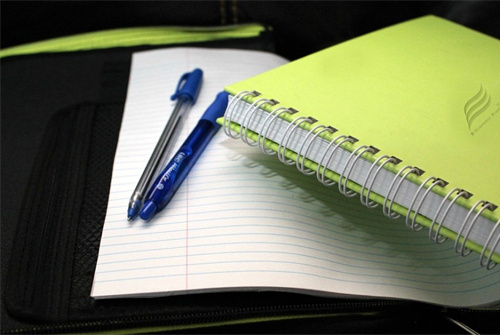垃圾分類知識(shí)短句合集70條

垃圾分類的科普知識(shí)
垃圾分類,一般是指按一定規(guī)定或標(biāo)準(zhǔn)將垃圾分類儲(chǔ)存、分類投放和分類搬運(yùn),從而轉(zhuǎn)變成公共資源的一系列活動(dòng)的總稱。下面是小編為大家整理的垃圾分類的科普知識(shí),僅供參考,歡迎閱讀。
垃圾分類的形式
垃圾分類是對(duì)垃圾收集處置傳統(tǒng)方式的改革,是對(duì)垃圾進(jìn)行有效處置的`一種科學(xué)管理方法。人們面對(duì)日益增長的垃圾產(chǎn)量和環(huán)境狀況惡化的局面,如何通過垃圾分類管理,最大限度地實(shí)現(xiàn)垃圾資源利用,減少垃圾處置的數(shù)量,改善生存環(huán)境狀態(tài),是當(dāng)前世界各國共同關(guān)注的迫切問題。
垃圾分類的優(yōu)點(diǎn)
減少土地侵蝕:生活垃圾中有些物質(zhì)不易降解,使土地受到嚴(yán)重侵蝕。垃圾分類,去掉可以回收的、不易降解的物質(zhì),減少垃圾數(shù)量達(dá)60%以上。減少污染:中國的垃圾處理多采用衛(wèi)生填埋甚至簡易填埋的方式,占用上萬畝土地;并且蟲蠅亂飛,污水四溢,臭氣熏天,嚴(yán)重污染環(huán)境。
垃圾的種類
可回收垃圾
主要包括廢紙、塑料、玻璃、金屬和布料五大類。
廢紙:主要包括報(bào)紙、期刊、圖書、各種包裝紙等。
塑料:各種塑料袋、塑料泡沫、塑料包裝(快遞包裝紙是其他垃圾/干垃圾)、一次性塑料餐盒餐具、硬塑料、塑料牙刷、塑料杯子、礦泉水瓶等。
玻璃:主要包括各種玻璃瓶、碎玻璃片、暖瓶等。(鏡子是其他垃圾/干垃圾)
金屬物:主要包括易拉罐、罐頭盒等。
其他垃圾
其他垃圾(干垃圾),包括磚瓦陶瓷、渣土、衛(wèi)生間廢紙、瓷器碎片等難以回收的廢棄物,采取衛(wèi)生填埋可有效減少對(duì)地下水、地表水、土壤及空氣的污染,在當(dāng)今的社會(huì),暫時(shí)還無有效化解其他垃圾的好方法,所以須要盡量少產(chǎn)生。
廚余垃圾
廚余垃圾(濕垃圾),包括剩菜剩飯、骨頭、菜根菜葉、果皮等食品類廢物。經(jīng)生物技術(shù)就地處理堆肥,每噸可生產(chǎn)0.6~0.7噸有機(jī)肥料。廚余垃圾含有極高的水分與有機(jī)物,很容易腐壞,產(chǎn)生惡臭。
有害垃圾
有害垃圾含有對(duì)人體健康有害的重金屬、有毒的物質(zhì)或者對(duì)環(huán)境造成現(xiàn)實(shí)危害或者潛在危害的廢棄物。包括電池、熒光燈管、燈泡、水銀溫度計(jì)、油漆桶、部分家電、過期藥品及其容器、過期化妝品等。這些垃圾一般使用單獨(dú)回收或填埋處理。
垃圾分類科普知識(shí)
現(xiàn)在,越來越多的人加入到垃圾分類行動(dòng)當(dāng)中啦,但是,你扔出去的垃圾分對(duì)了嗎?下面和小編一起來看垃圾分類科普知識(shí),希望有所幫助!
誤區(qū)一:廁紙也是紙,可以回收
可回收的廢紙主要包括報(bào)紙、期刊、圖書、各種包裝紙等(污染嚴(yán)重的紙除外)。在一般的認(rèn)知中,廁紙屬于紙張,是可回收的。但實(shí)際上,廁紙遇水即溶,不算可回收的“紙張”。類似的還有餐巾紙、廚房用紙等,也不可回收,都屬于“干垃圾”。
誤區(qū)二:干的紙尿褲是干垃圾,濕的是濕垃圾
不論紙尿褲濕不濕,紙尿褲都是干垃圾!因?yàn)楦衫窭⒉皇歉鶕?jù)含水量來區(qū)分的,濕垃圾是指日常生活產(chǎn)生的.容易腐爛的生物質(zhì)廢棄物,干垃圾是指除有害垃圾、可回收物、濕垃圾以外的其他廢棄物。類似的還有餐巾紙、濕紙巾、衛(wèi)生間用紙等。
誤區(qū)三:大骨頭從廚房來,屬于濕垃圾
事實(shí)上,大骨頭因?yàn)椤半y腐蝕”且“質(zhì)地堅(jiān)硬不易粉碎易損壞濕垃圾末端處理設(shè)備”而被列入“干垃圾”,類似的還有榴蓮殼、椰子殼等,但雞骨、魚骨、玉米棒、蘋果核等較軟“易腐蝕”,屬于“濕垃圾”。
誤區(qū)四:將濕垃圾裝袋子后,直接扔進(jìn)垃圾桶
常用的塑料袋,即使是可以降解的,也遠(yuǎn)比濕垃圾更難腐蝕。此外裝過濕垃圾的塑料袋沾有各類污跡,因此正確做法是先破袋,將濕垃圾倒入“濕垃圾”桶中,再把袋子扔進(jìn)“干垃圾”桶中。
誤區(qū)五:飲料沒喝完,塑料飲料瓶直接投入可回收垃圾桶
不可以!塑料飲料瓶里剩下的液體,屬于純流質(zhì)的食物垃圾,應(yīng)先將液體直接倒進(jìn)下水口,再將塑料飲料瓶沖洗干凈后壓扁,投放到“可回收物”垃圾桶中。這樣既可以減少環(huán)衛(wèi)工人的工作量,又可以壓縮塑料瓶的體積,方便運(yùn)輸。類似的還有裝可樂的易拉罐、裝牛奶的利樂包裝等。
誤區(qū)六:過期食品連帶包裝物一起丟進(jìn)垃圾桶
過期食品,比如一包受潮過期的瓜子,連帶包裝物一起丟進(jìn)垃圾桶?這樣做顯然不妥!因?yàn)楣献尤菀赘癄€,屬于濕垃圾,而包裝物(如塑料包裝袋),屬于干垃圾,所以正確做法是將瓜子投放到濕垃圾的收集容器,塑料包裝袋投放到干垃圾的收集容器中。
誤區(qū)七:玻璃瓶收破爛的都不要,扔進(jìn)干垃圾桶
玻璃瓶屬于“可回收物”,可是因?yàn)樗鼈儌€(gè)頭大、分量重、回收利潤低,就連收破爛的都嫌棄!收破爛的不收,那我們就只能把他們?nèi)舆M(jìn)“干垃圾”桶嗎?不!正確的做法是投放到小區(qū)公共區(qū)域設(shè)置的可回收物收集容器,如果小區(qū)有開展兩網(wǎng)融合服務(wù)站點(diǎn),還可以將可回收物交投到這里,由保潔員分揀后納入廢品回收系統(tǒng)。
關(guān)于垃圾分類的英語作文(通用10篇)
在日常的學(xué)習(xí)、工作、生活中,大家總免不了要接觸或使用作文吧,借助作文可以提高我們的語言組織能力。為了讓您在寫作文時(shí)更加簡單方便,下面是小編收集整理的關(guān)于垃圾分類的英語作文(通用10篇),歡迎閱讀,希望大家能夠喜歡。
垃圾分類的'英語作文1
The resources of the earth are limited. We should cherish and cherish these resources. So were going to do garbage sorting, and reuse the available resources again.
At home, remind everybody garbage classification, water bottles, cans, such as waste paper packed together to sell, resources recycling, and made money, the waste batteries, cartridges, etc in the recycling bins. In school, you can reuse and reuse garbage, put in two different trash cans, one is recyclable and one is unrecyclable. Learn from your classmates and discuss ways to classify rubbish. In the suburbs, we will use two bags to classify garbage, pick up the garbage that we see and classify it, so that it is the best young pioneers. This allows you to easily categorize.
Everyone is sorting garbage, and the earth is beautiful. We will see the thick wood, the clear water, the blue sky and the blue sea, everyone has a sweet smile.
垃圾分類的英語作文2
With the development of economy and the improvement of peoples living standard, the problem of "garbage besieged city" has become increasingly prominent. Everyone will throw out a lot of garbage every day, but there are few cases of garbage classification. Last Sunday, I came to a nearby village to do a small survey of garbage classification.
As soon as I entered the village, I found that there were many health dead spots in the village. The back streets and alleys were full of garbage, and the garbage cans were stinking. "How do you deal with the garbage in your house?" I visited several families randomly and got the same answer: "lets throw the garbage together and let the garbage truck take it away."
There are many rubbish in our daily life. They come from different places and pass by different peoples hands. Many people throw some recyclable things into the garbage can no matter what they are, which is very wasteful. In addition, garbage piles up to destroy our living environment, even affect human health, which is very harmful
Therefore, I think each department can go to some public places or communities for publicity and education. Through holding some garbage classification knowledge competitions, we encourage everyone to actively participate in and really attach importance to it, so that people can fully understand the methods and significance of garbage classification.
垃圾分類的英語作文3
Today I did a good thing at home, which is to make a careful classification of garbage in the garbage can.
In advance, my parents and I searched the Internet for information, and learned about the basic classification of garbage: there are recyclable garbage, kitchen waste recycling garbage, other garbage, and hazardous waste. Then we will collect in daily life of the moon cake box, cardboard production into a trash can, I painted posters, trash can is responsible for layout, mom and dad is responsible for the fixed sealed cardboard do mand to trash on the ground with his finger said. "like a fishbone, ah, ah leftovers etc. Garbage can be recycled garbage into the kitchen garbage. Junk like battery light bulbs is toxic and hazardous. Waste paper, plastic, iron and wood are also recyclable waste. So we began to scramble.
We managed to sort it out for a long while. Later, dad found out that we had made a lot of mistakes. We sorted it out almost again. I think: must study hard to learn about environmental protection, make our environment more beautiful.
垃圾分類的英語作文4
As is encouraged to protect the environment,rubbish classification is very necessary.It can save the money and the time for a country to deal with rubbish and it also can enhance the quality of people.Concerning the benefits of rubbish classification,China has done something really wisely.
Now we can see all kinds of rubbish bin in the street,in the park,in the munity and so on.And rubbish classification is now deeply rooted in peoples mind.Im really appreciate that.
垃圾分類的英語作文5
Most people haven’t formed the habit of and mitted themselves to waste sorting now in China. They would throw their domestic garbage - kitchen refuse, abandoned plastics and papers,broken china and glass, etc. - all into the same public containers, without thinking whether they are recyclable or not.
This, obviously, will reduce the value of stuff that can be recycled or reused, such as plastics and papers. Besides,the growing amount of garbage makes the building of more landfills necessary, which will worsen the shortage of land. Worse still,disposing of the recyclable waste like plastics by burning will give off toxic smoke which seriously pollutes the air. ID this sense, throwing the trash unsorted should not be advocated, no matter from the perspective of economy or protecting the environment.
On the contrary, if we sort out recyclable waste before throwing them away, the amount of trash will be reduced sharply. Accordingly, the cost of running landfills and treating waste will be brought down greatly. Whafs more important, less waste will have to be burned or buried, meaning resources waste and pollution will be reduced. Therefore, economically and environmentally, it is of great significance to call for waste sorting.
垃圾分類的英語作文6
Dear fellow students,
Our school has started a program of garbage classification. Different kinds of garbage are required to be sorted out and placed in different dustbins. Paper can be recycled, while leftovers can be collected as food for pigs or processed as fertilizer for plants. Above all, such harmful things as plastics and used batteries should not be mixed with other wastes.
The program is of great benefit. We will be able to save resources by making use of recyclable garbage and harmful things will not pollute our environment after special treatment.
Lets work together for a better campus!
垃圾分類的英語作文7
One day, my mother and I went for a walk in the park. I was very happy, but I saw one of the things that made me most angry. The aunt put all the rubbish in a red garbage bag with nails in it. Tubes. The skin. Waste paper, etc. Recyclables. Hazardous waste. Kitchen waste and other garbage are all in the kitchen trash bin, and do this every night. I thought: if everyone did this, the sanitation workers would not be exhausted. How could this work? I was not worth the sanitation worker, I went over and said to her, "aunt, there are four trash cans here. Please sort them out." Who knows, it seems that I am not right, in turn scold me to say: "you this little girl, I cent do not classify you what matter, scatter your step, love nosy person." At that time, I really wanted to look for a lot of people to ment, luckily my mother stopped me, I didnt have a joke.
This kind of person is not classified, still break a verbal abuse, really want to hit him.
垃圾分類的英語作文8
Seeking to reduce the amount of garbage in the city, Hangzhou, capital of East China’s Zhejiang Province, is experimenting with a measure to ‘name and shame’ those who fail to put garbage in the right place.
At the Dongpinggang Community on Hubing Road, people should mark their household numbers on garbage bags before throwing them away, and there are now inspectors staying beside the dustbins, evaluating the classification of garbage.
The regulations on garbage classification require people to put garbage into four separate bins labeled recyclable waste, harmful waste, kitchen waste and other waste. A total of 843 residential(住宅區(qū)的) areas, about 55 percent of the city’s total, have adopted this measure.
The results of the evaluation are posted in a diagram near the dustbins. The households which have correctly sorted more than 80 percent of their garbage will be marked in green,those with less than 40 percent garbage correctly sorted are marked in red and the rest in yellow.
Vice director of the Hubing Road office, Yao Jie, said. “The performance of every household in garbage sorting can be clearly seen by the public under such a system.”
垃圾分類的英語作文9
Society produces a lot of rubbish, such as leftover food, waste paper, plastic bottles and batteries every day. It has bee a big headache in every city. How to solve this problem? I think rubbish classification is a good way of dealing with it.
Firstly, rubbish classification can reduce the amount of rubbish and the rubbish pollution to the environment. What is more, it can recycle resources, which will do good to our environmental protection.
Since rubbish classification has so many advantages, our government should take effective measures and immediate actions. Different dustbins should be placed in public places so that residents can leave their sorted rubbish in them.
垃圾分類的英語作文10
Some waste is not degradable naturally,which will exist forever, but some waste can be recycled and reused again.
Waste sorting can help divide the reusable waste from the rest. And there are two reasons for doing this.
Firstly, the earth is limited in its natural resources, and many products are made from finite resources, which cannot be generated by nature in a short period of time. Simply dumping this kind of products is wasting resources. Secondly, some part of the waste is of value. To reuse and recycle this kind of waste is to save resources to a large extent, which also contributes to environmental protection. Sorting waste is a meaningful deed. If everyone can do it, small things can make a big positive impact on the environment.
垃圾分類的調(diào)研報(bào)告
在我們平凡的日常里,報(bào)告對(duì)我們來說并不陌生,我們?cè)趯憟?bào)告的時(shí)候要避免篇幅過長。一起來參考報(bào)告是怎么寫的吧,以下是小編為大家收集的垃圾分類的調(diào)研報(bào)告,僅供參考,大家一起來看看吧。
垃圾分類的調(diào)研報(bào)告1
隨著農(nóng)村群眾物質(zhì)生活水平的提高,農(nóng)村生活垃圾的數(shù)量在不斷的膨脹,大多數(shù)村落垃圾隨意傾倒在村邊,使農(nóng)村面源污染越來越嚴(yán)重,垃圾的收集處理已成為困擾農(nóng)村建設(shè)的一個(gè)棘手問題。現(xiàn)在的農(nóng)村生活垃圾已不再是簡單的麥秸、草灰,如果進(jìn)行簡單的掩埋和焚燒,將會(huì)對(duì)土地和環(huán)境造成較大的污染。所以,不論是政府或農(nóng)村的人們都面臨著一個(gè)嚴(yán)重的問題——農(nóng)村垃圾怎樣才能得到有效的處理。調(diào)查如下:
【第1句】:農(nóng)村垃圾處理的基本情況。
【第1句】:村民自己設(shè)置垃圾堆,有各種污染;垃圾按照就近原則處理,村里沒有相應(yīng)的機(jī)構(gòu)去處理垃圾,去維護(hù)環(huán)境。
【第2句】:村附近的可利用垃圾收購站數(shù)量少,而且大多數(shù)村民也無收購興趣,無進(jìn)行整理后出售的動(dòng)力。當(dāng)然也有個(gè)別村民認(rèn)識(shí)到垃圾處理的重要性,但是政府并沒有設(shè)立有關(guān)垃圾處理的基礎(chǔ)設(shè)施。我村對(duì)于垃圾處理,雖然建立了垃圾池,并且安排了相應(yīng)的人員來處理垃圾,但是對(duì)于垃圾的后期處理卻也沒有辦法,只是倒在村后或是河邊。
【第3句】:垃圾危害意識(shí)和垃圾自分類觀念不夠,某些地方垃圾遍地?zé)o人處理,自覺性不強(qiáng),隨意焚燒,空氣污染嚴(yán)重。由于農(nóng)民對(duì)垃圾的危害認(rèn)識(shí)不足,因此在處理垃圾上就顯得極為隨意。村里雖然建了垃圾池,但村民總是就近將垃圾傾倒在河里等;有的人對(duì)動(dòng)物尸體等不經(jīng)任何處理,隨意丟棄在河邊;村街道也沒有垃圾桶,可見從村委那里就沒有認(rèn)識(shí)到垃圾污染的嚴(yán)重性,沒有給村們一個(gè)要保護(hù)環(huán)境建立一個(gè)意識(shí)。
【第2句】:存在的問題和困難。
【第1句】:思想認(rèn)識(shí)不到位、資金投入不足。村們對(duì)于垃圾的危害沒有一個(gè)正確的認(rèn)識(shí),只是知道垃圾很臟,很臭。但是更為嚴(yán)重的他們并沒有都認(rèn)識(shí)到。村委也沒有對(duì)垃圾的危害方面的知識(shí)對(duì)村們進(jìn)行宣傳教育。其次是政府對(duì)垃圾處理問題的重視還不夠,給個(gè)村用于處理垃圾的經(jīng)費(fèi)還不夠。
【第2句】:村們生活水平的提高,使生活垃圾增多。隨著經(jīng)濟(jì)的發(fā)展,農(nóng)村的生活變好,但是生活垃圾也隨之增長。不益腐蝕的“白色污染”也增多了。還有一些不必要的包裝產(chǎn)品也走向了農(nóng)村。
【第3句】:垃圾的最終處理問題。村里雖然有相關(guān)的垃圾清運(yùn)安排,但是垃圾運(yùn)走后,也只是堆放到河邊或者是填埋焚燒,這是不夠的,它不能解決問題。而且還會(huì)帶來問題,可能會(huì)污染了土地和空氣。
【第3句】:對(duì)農(nóng)村垃圾處理的意見和建議。
【第1句】:廣泛宣傳,提高思想認(rèn)識(shí)。要加強(qiáng)對(duì)農(nóng)村垃圾處理問題的宣傳教育,不斷提高廣大村們的環(huán)境保護(hù)意識(shí)。要進(jìn)一步廣泛宣傳農(nóng)村環(huán)境污染問題的嚴(yán)重性和治理污染的緊迫性。
【第2句】:要號(hào)召村民,盡量減少日常生活垃圾,或是回收利用。并且提倡使用那些能夠在短時(shí)間內(nèi)自然風(fēng)化的塑料“垃圾”,減少“白色污染”。村民也像城市一樣,“零包裝”。要簡化、減少包裝、同時(shí)也使用可利用、可降解的包裝材料。
【第3句】:要建立相應(yīng)的垃圾處理體系,對(duì)垃圾做集中處理,不能隨意的堆放。而且政府也應(yīng)該要重視農(nóng)村垃圾處理問題的重要性,對(duì)各村要給予經(jīng)濟(jì)上的支持。還要組織一些垃圾處理的專家到農(nóng)村進(jìn)行宣傳和幫助指導(dǎo),畢竟村們和村委都沒有著方面的專業(yè)知識(shí),也沒有足夠的認(rèn)識(shí)。
不論是農(nóng)村還是城市,做好垃圾處理都不是政府或是公民單方面就可以做好的。它需要所有的力量都團(tuán)結(jié)起來,共同努力,才會(huì)有進(jìn)展。在次,希望大家不僅從個(gè)人做好環(huán)保,也要告知身邊的人。還有政府也要去支持和鼓勵(lì)農(nóng)村的垃圾處理工作的進(jìn)行。最后,我們所生活的大家庭需要每個(gè)家庭成員都來維護(hù)他的美麗。
垃圾分類的調(diào)研報(bào)告2
【第1句】:我市生活垃圾處理基本情況
根據(jù)城市生活垃圾的不同屬性、利用價(jià)值,以及對(duì)環(huán)境的影響,一般分為可回收垃圾、餐廚垃圾、有害垃圾和其他垃圾。常用的垃圾處理方法主要有:綜合利用、衛(wèi)生填埋、焚燒發(fā)電、生物堆肥、資源返還。目前我市的生活垃圾主要采取綜合利用和焚燒發(fā)電兩種方式。(建筑垃圾主要用于制成修路、防洪等建材以及路基的輔料,少數(shù)用于填埋廢溝呆塘;醫(yī)療垃圾由衛(wèi)生部門統(tǒng)一實(shí)行無害化處理。)
以xx市為例,近年來,隨著經(jīng)濟(jì)社會(huì)快速發(fā)展,城市化水平不斷提高,城區(qū)生活垃圾產(chǎn)生量也保持穩(wěn)定增長的態(tài)勢,20xx年,市環(huán)衛(wèi)處運(yùn)送南通市(長江)垃圾焚燒發(fā)電廠就達(dá)到58260噸,平均4855噸/月,這還不包括鄉(xiāng)鎮(zhèn)運(yùn)送的垃圾量。
【第2句】:我市現(xiàn)階段垃圾分類處理的主要做法
實(shí)現(xiàn)垃圾分類收集處理有利于資源的再利用,有利于城市的可持續(xù)發(fā)展,是貫徹科學(xué)發(fā)展觀、建設(shè)和諧社會(huì)、資源節(jié)約型社會(huì)的必然要求。近幾年來,也有不少人大代表、政協(xié)委員和社會(huì)各界的有識(shí)之士也對(duì)生活垃圾的分類收集問題提出過很有見地的建議和提案。為我們做好這方面的工作提供了全面的指導(dǎo)和幫助。目前,我市在垃圾分類收集處理方面主要采取了以下幾種做法。
(一)加強(qiáng)宣傳引導(dǎo)和教育。市城管局在如皋電視臺(tái)、如皋日?qǐng)?bào)專門開辟《如皋城管》電視專欄、《城管之窗》報(bào)刊專欄,借助大型led顯示屏、城管宣傳櫥窗等載體,加強(qiáng)對(duì)市民群眾的`宣傳教育,讓市民群眾了解可回收和不可回收垃圾的區(qū)別,不斷增強(qiáng)了市民自覺參與垃圾分類處置的意識(shí),得到了廣大市民的理解和支持。調(diào)查中我們也發(fā)現(xiàn)絕大多數(shù)居民已經(jīng)將可利用的垃圾,如廢舊報(bào)紙雜志、紙盒紙箱、塑料桶、易拉罐,以及廢舊家電等出售給廢舊收購人員,有的居民將廢舊衣物進(jìn)行捐獻(xiàn)、送到農(nóng)村二次利用或用于擦地拖地日常生活等,部分不可回收的垃圾大多數(shù)都實(shí)行了袋裝化。還有一些遺漏的可回收垃圾被拾荒者進(jìn)行交易等,為垃圾科學(xué)處理創(chuàng)造了有利條件。
(二)合理設(shè)置垃圾分類收集容器。近年來,我市加大環(huán)衛(wèi)設(shè)施投入,特別是分類收集垃圾容器的投入,已經(jīng)在海陽路、中山路、寧海路等主要干道設(shè)置了美觀新穎、經(jīng)濟(jì)適用的新型分類收集果殼箱514只,標(biāo)明了可回收、不可回收標(biāo)志,在文定苑、武定苑、美倫堡、金九華府等小區(qū)設(shè)置新型垃圾收集箱82只。針對(duì)商業(yè)中心區(qū)特點(diǎn),20xx年,市環(huán)衛(wèi)處在文昌路、寧海路、大司馬路、福壽路等12個(gè)路段試行了垃圾袋裝化、定時(shí)上門收集舉措,由環(huán)衛(wèi)保潔人員定時(shí)、定點(diǎn)到沿街商戶中進(jìn)行收集,減少了垃圾的二次污染。各小區(qū)、物業(yè)公司及環(huán)衛(wèi)處將城區(qū)所有垃圾集中送至中轉(zhuǎn)站,經(jīng)壓榨處理后運(yùn)至南通市垃圾焚燒發(fā)電廠,實(shí)行垃圾焚燒發(fā)電的無害化處置。
(三)推進(jìn)餐廚垃圾無害化處置工作。我市經(jīng)營餐飲行業(yè)相對(duì)集中,餐廚垃圾相對(duì)也比較多,一般來說,餐飲行業(yè)的餐廚垃圾都有專門的人員進(jìn)行收集,市質(zhì)監(jiān)、藥監(jiān)、工商部門強(qiáng)化處理過程的監(jiān)管。大多數(shù)家庭的餐廚垃圾排入污水管道,由市同源污水處理廠進(jìn)行無害化處理。
【第3句】:下一步措施。
生活垃圾的分類收集是實(shí)現(xiàn)生活垃圾處理“減量化、資源化、無害化”的最基本要求,我們也一直非常重視和關(guān)心這項(xiàng)工作。但由于生活垃圾分類工作面廣量大,涉及到宣傳教育的深入程度和社會(huì)各界的認(rèn)識(shí)、配合程度,涉及到對(duì)社會(huì)上大批拾荒人員的管理,還涉及到環(huán)衛(wèi)設(shè)施建設(shè)和管理經(jīng)費(fèi)的投入程度等等因素,因此對(duì)生活垃圾實(shí)行全面分類收集處理,現(xiàn)階段難度還比較大,需要一個(gè)循序漸進(jìn)的過程。
今后,市城管局將緊扣代表建議,積極爭取政府投入,在社會(huì)各界有識(shí)之士的共同關(guān)心和支持下,進(jìn)一步加大宣傳教育力度,力爭在建立生活分類投放、分類收集、分類清運(yùn)、分類處理,以及產(chǎn)、供、銷“一條龍”機(jī)制上有新的突破。
(一)廣泛發(fā)動(dòng)宣傳。進(jìn)一步提高公眾對(duì)垃圾分類重要意義的認(rèn)識(shí),通過廣播、電視、網(wǎng)絡(luò)等現(xiàn)代媒體手段和報(bào)刊、雜志、板報(bào)、墻報(bào)等載體,制作宣傳手冊(cè)、公益廣告、動(dòng)漫圖畫等,開展電視訪談、組織市民參觀、政府部門與市民對(duì)話等多種形式,加強(qiáng)垃圾分類收集的宣傳工作,提高公眾的環(huán)境意識(shí)、責(zé)任意識(shí)、參與意識(shí)以及有關(guān)垃圾分類的科普知識(shí),讓廣大市民知曉垃圾為什么分類、分幾類、怎么分類。
(二)推進(jìn)分類投放。在總結(jié)好的做法和借鑒外地經(jīng)驗(yàn)的基礎(chǔ)上,推進(jìn)垃圾分類收集工作,統(tǒng)一添置收集標(biāo)準(zhǔn)容器,統(tǒng)一張貼標(biāo)識(shí)和顏色,明確各參與單位職責(zé)分工,配備專門管理人員,組織志愿者活動(dòng),開展專業(yè)培訓(xùn),提高從業(yè)人員業(yè)務(wù)素質(zhì)。
(三)推進(jìn)分類清運(yùn)。針對(duì)各類垃圾添置清運(yùn)車輛及配備設(shè)備。可回收垃圾由環(huán)衛(wèi)部門在指定點(diǎn)收集,回收后統(tǒng)一由指定的收購站處理;餐廚垃圾要采用去壓縮式收集和密閉式運(yùn)輸,防止暴露、散落和滴漏;有害垃圾由環(huán)衛(wèi)專業(yè)人員收集后,清運(yùn)到制定場所填埋或焚燒。
(四)推進(jìn)分類處理。加快建設(shè)完善垃圾分類相關(guān)終端處理設(shè)施,可回收廢物納入全市資源回收系統(tǒng)綜合利用,餐飲業(yè)泔水與食品加工有機(jī)廢物和部分有機(jī)垃圾送堆肥廠資源化利用,其余可焚燒生活垃圾送至垃圾發(fā)電廠焚燒發(fā)電。針對(duì)建筑垃圾等各類特種垃圾,抓緊啟動(dòng)建筑垃圾消納場所項(xiàng)目建設(shè),逐步形成多元化的垃圾分類收集和分類處理體系。









